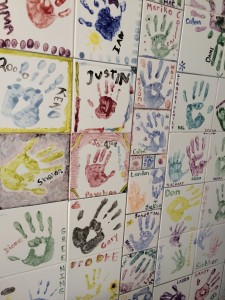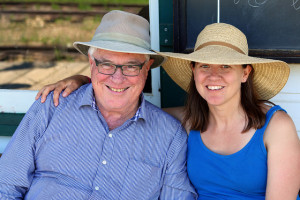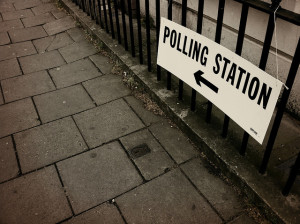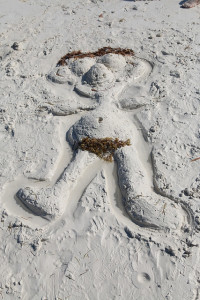 My daughter came home from school a few days ago with a story that made my jaw drop. The kids on the playground were discussing the recent shooting of two RCMP officers in our small town. My daughter informed me that the shooter drove to a house in a rural area and shot a whole family before he shot himself.
My daughter came home from school a few days ago with a story that made my jaw drop. The kids on the playground were discussing the recent shooting of two RCMP officers in our small town. My daughter informed me that the shooter drove to a house in a rural area and shot a whole family before he shot himself.
It was a sad game of “telephone.” There were some facts in her story but many exaggerations and misinformation. Mostly an already dramatic and scary story turned into something even more scary and dramatic. The truth is hard enough for a 10-year-old to understand. During times of uncertainty, kids do this. Adults do this too. I can think of many examples from the past week where we have all been guilty. We take rumor that is presented to us as fact and then present it to others in the same way. We inadvertently cause things to be more difficult for all involved even when we mean well.
I have gotten many questions over the last week from parents wanting information on how to help their teens and children with the death of Constable Wynn. I thought I would try to put these down in writing so it can help anyone that may have some concerns.
1. Talk to your kids. Regardless of the age of your child they will be exposed to this event in one way or another. Even if your child does not know the families directly, the community is mourning in very public ways. Flags are at half-staff, ribbons are popping up everywhere and on Monday we will have an unimaginable influx of officers, dignitaries and commotion will descend on the city.
2. Ask questions and listen. What is your teen hearing at school? What are your child’s thoughts on what happened? If you are listening you will hear the misinformation and more importantly be able to hear their fears. You will be better able to dispel disinformation and reassure fear if you keep your ears open and your mouth closed.
3. Let them know that they are safe. Kids and teens are just like adults. They need to feel safe. We often like to believe that bad things don’t happen to good people. When faced with the reality of life, we all are often shaken up. While it is important not to lie, it is also important for them to have perspective. Remind them that these are isolated events and that they don’t happen every day and that they are unlikely to happen to them or someone they love. The RCMP are still doing their jobs.
If your kids are part of a family of military, RCMP or other first responders, the fear can hit closer to home. Reassure your children of the training, equipment and safety measures that are in place to keep their family safe. Acknowledge the risk but focus on the protective factors.
4. Be honest. Teens and children need to know where to go for the truth. If you don’t talk about it, make up or gloss over details, your kids will know it. You don’t need to go into graphic detail, only answer what your child is asking.
5. Watch your language. Children are very concrete. They don’t understand flowery language like “passed on” or “went to sleep.” It often makes us feel better softening the words but it can confuse and scare children. They need concrete language that they can understand such as “died” and “his body stopped working.” That doesn’t mean you have to leave your religious beliefs out, but be cautious about being too vague.
With teens you can be more philosophical, their ability to handle abstract thinking is more mature. Make sure to explore their understandings and beliefs, not just present your own. Adolescents need to explore all sorts of ideas so that they can figure out who they are in the world. Use the opportunity to understand them better. It will help you both feel closer.
6. It is okay to talk about the offender. Often kids try to make sense of what happened by searching for explanations as to “Why” or “How?” Talking about the offender is part of this questioning. Be open and honest. I have told my children what he did. I have told them that it has caused unimaginable pain to many families, and to our community. I have not called him a “bad guy”. We have to be careful that our kids, regardless of their age, don’t equate their own mistakes with them turning into a monster. In our family we talk about his family and how they may be coping too. This is a tragedy for so many involved.
7. There is no right or wrong way to grieve. Some people will be affected more than others. Some kids/teens will need to talk, some kids/teens won’t. Some will want to attend the memorial, some will not.
Give them the opportunity to talk, grieve and do whatever they need to do but don’t force them to do anything. One mistake parents make is to over-analyze, over-protect and over-process the events. Teens and children need to go back to their regular routine as soon as they are ready. If they are wanting to talk about other things, it is time to move on.
8. It takes time. Adolescents, and children grieve over time, just like the rest of us. You may find that this doesn’t affect them now but it may affect them later. These things come and go over time in unpredictable ways. We often give people a ton of support around the time of an incident but then fade out. There is no time frame or end date.
9. Support your kids in being supportive. If your child is a support for the families involved help them to be present to their friends. They don’t have to do anything special, just play, hang out and listen. Often teens avoid situations that are intensely emotional. So your kid may struggle to know what to say or do.
The Wynn family just need to know that people care, and that they can just be themselves. They don’t need to be treated with kid gloves, put on a pedestal, or avoided like they have some infectious disease. They have had a horrible thing happen in their life. They deserve our respect and our thanks but most of all they deserve to have people walk with them in their grief so they don’t have to do this alone.
10. Give yourself a break. Despite the “rules” I have laid out for you, there is no right way to do this. If you approach your child with love and compassion then they will learn from this experience about love and compassion. Trust your gut and your relationship with your child. Let that be the most influential guide.
 “Mom! Look how much my hand has grown!”
“Mom! Look how much my hand has grown!”









